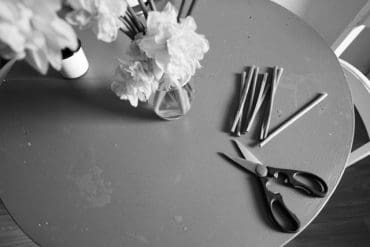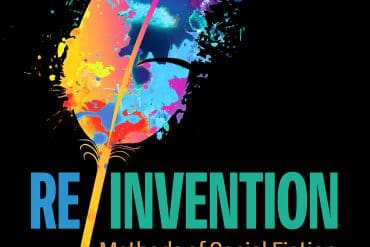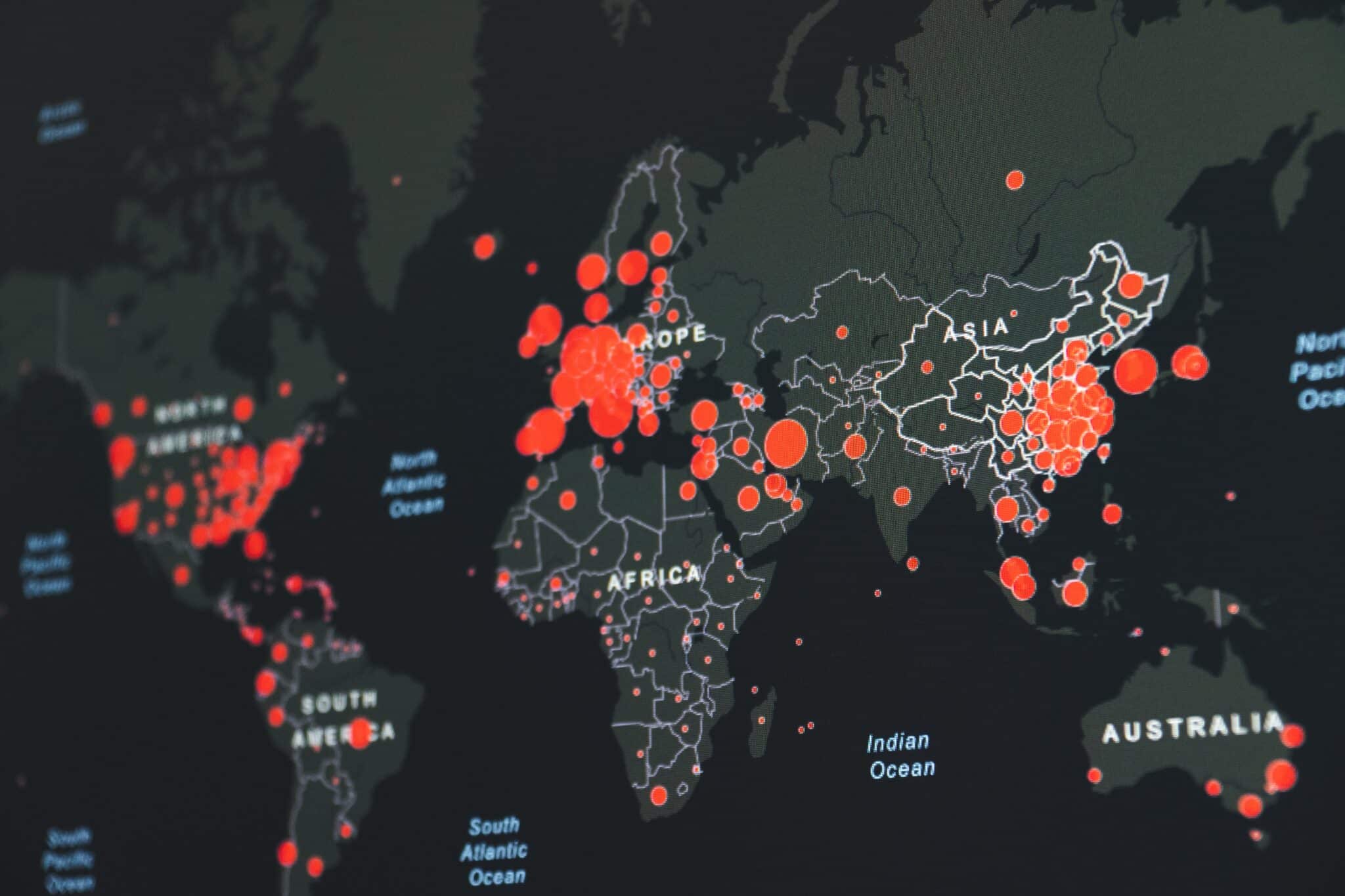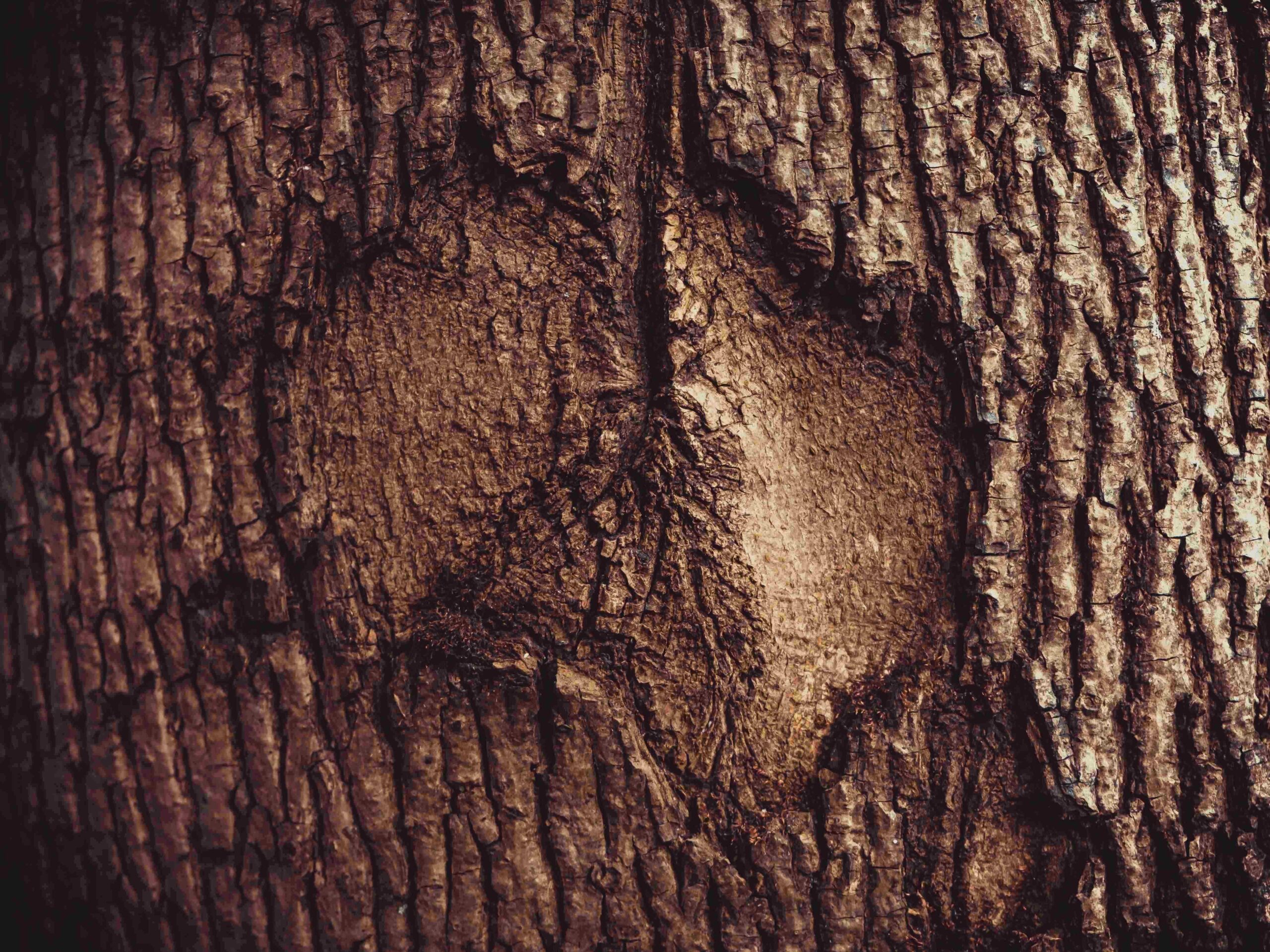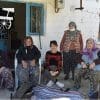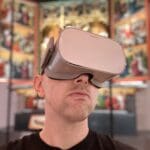How to Survive a Cult in Nebraska
Author’s Memo
Scars tissue is the living inscription of experience, the body’s archive of injury born in rough skin. Scars signal the body’s incidental, pathological, or surgical intersection with others – with technologies, collectives, and infrastructures, for example. Scaring is a form of writing endemic to the self that also bears the inscription of the other: scarring is a sign of healing that can show where, for example, a surgeon, abuser, or opponent has been. It can also be a sign of terminal pathology, as in the scar-ridden chambers of dying lungs or heart. Scars thread together multiple incarnations of memory, as they elicit storytelling and comport with documentation in archives across institutions. Scars persist in the limbo between the self we experience and the institutional self. Thus, scars can lead in unexpected directions, through publics and counter-publics, “personal” and “professional” lives.
‘Scars signal the body’s incidental, pathological, or surgical intersection with others…
This work is part of a larger ethnography of scars, one that addresses the intersection medicine, religion, and body politics in (among other places) Nebraska. Writing about scars has led me through unexpected moments of personal and social history that are difficult to triangulate (How do you triangulate a feeling?) – but are nonetheless anchored in the body and its traces (medical records, personal journals, notes, marginalia, the unconscious…). On one hand, this is a narrative about medicine and medical malpractice in the Midwest in the 90s. On another, it’s a story of forced childhood membership in a cult and how the cult’s conservative ideology affected my early life at every level.
In a broader sense, the narrative describes how I learned the power of medical institutions, how to use them for information while knowing the limitations of their care. Later, as a medical researcher on the disease LMNA cardiomyopathy, patient of that disease, and inventor of a pharmaceutical patent (US 10,213,397 B2) for the disease’s management, I would use this experience productively to navigate a complex set of professional, institutional, and social imperatives (the full scope of the work of which this is part).
‘Scars thread together multiple incarnations of memory.
Some scars require the full range of poetic devices – metaphor, metonymy, synecdoche, rhyme, alliteration, etc. to render the “evocative” truth. Poetry casts scars into a dialectic of desire, executed with the other who exists at (to cite Andrea Lunsford and Lisa Ede) the intersection of audience addressed and invoked. This is to say that poetic writing about scars should offer readers a way to relate, reflect, tarry with and work through traumas, the difficult imprints of living, just as Carol Rambo encourages us to do.
I started writing this work as a series of platitudes about scars, but that’s a pretty bad way to tell a story. After a while, the platitudes gave way, and I told the story that I really wanted to tell – what you’ll read in a moment. Figuring out what one really wants for a narrative can be tough; it happens in the back-and-forth with editors who share the symbolic field. Sometimes those editors are in your own head, and sometimes they are the scars themselves: pain that wakes you up at night and goads you to a more fitting catharsis. The following paragraph was once the introduction. I liked it, but it didn’t pierce leather:
Scarring is a sign of healing that can show where, for example, a surgeon, abuser, or opponent has been.
“I was in a bind. I needed to know what was happening and why. The first surgery, the corrective one, had failed by half, a fact irrelevant to me until old scars like subduction volcanoes burned to life with the heat of a subterranean fault line. Catholic adolescence smells like sulfur: evaporating faith, I guess. You cannot (it turns out) manifest normal genitalia through the power of positive thinking, and the Lord is parsimonious with his revelations.”
This, to me, was no autoethnography because it failed to take the reader into the world, to invite the reader to the social menagerie, ugly as it is sometimes. I hope this work offers more perspective.
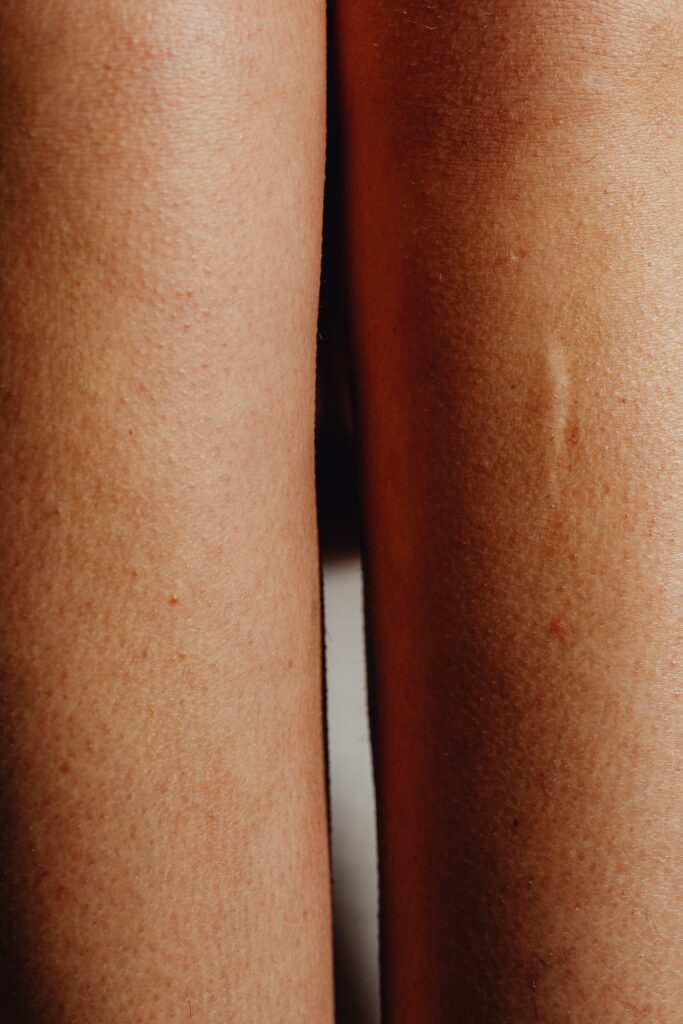
How to Survive a Cult in Nebraska
I.
Everyone calls a woman “Mother” who lives in a round, white neocolonial at the back of the compound. She loves Jesus, hates abortion, loves gays but hates the sin. The archbishop is a close personal friend. Wormy proteins are secretly eating her brain. Teal-robed adults doing prayer-work wander her grounds, intuiting divine will by request. Which chemo doc? Job? Nursing home? Mutual fund? Donations are accepted.
Neighbors do not like these people. Lutherans with a white centennial church nestled between bluffs of old growth hardwood (a microclimate cooler than the farmland over the highway) would prefer that silent, rosaried grownups not wander fence lines where their children play. Seventy acres of prime forest real estate in a pocket of Nebraska that looks like the Berkshires (a well-kept secret) and these seafoam green who-knows-what with their outdoor night Eucharist and wailing prayer pay not a cent (not a cent!) in property taxes.
“Secularism is a slippery slope,” he says.
Behind a walnut tree I spit out communion wine that’s gone vinegar and look up to see a mulleted ex-rocker who used to dabble in Satanism and pornography weeping on a folding chair next to the big tent. He’s spoken on the evils of rock music in our living room, a cultural exegesis of wandering confession. Beside his wife and baby, he produces album covers from a gym bag, flashing orphic symbols by order of sacrilege: horn, hoof, snake, wolf, monolith, guitars shaped like lightning, runes, ankhs, sigils, ouroboroi, cross (upside down), cross (in a circle), circle around a dot.
Homer Simpson’s eyeball? I think.
“Secularism is a slippery slope,” he says. “I started off listening to top-40 and pretty soon—”
His wife bears a breast for the newborn, and at this I’m a little surprised. Age nine, I’m no stranger to the graven image (Slayer has nothing on the pediatric ICU where I’ve seen a family member tubed up more than once), but a public boob in pre-millennial Nebraska is rare like free-roaming bison or Democrats. While mullet works himself into a winter sweat of today’s cigarettes, his wife feeds the baby with an energy I won’t understand until my wife’s C-section. She’s sore, tired, and five years on humoring this idiot. His regret? She’s over or above it. I wish I could get free like that.
II.
Pneumonic for weeks every year, my sister wins the chickenpox lottery twice. Spots appear a third time, and her hospital room fills with doctors from Infectious Disease who marvel at the only child in Nebraska with Kawasaki’s. Stomach pains prompt excision of a healthy appendix, and a dead pacemaker stored in her abdomen turns itself on unsolicited, emergently. The water of Lourdes crossed upon her head, beeping machines pace hospital time, and the Wheel of Fortune spins on TV. Phlebotomists tube blood, and hospital clowns twist balloons into rubber zoos. A priest speaks Eucharistic mercy over nebulizer steam. The kid struggles to breathe. I guess when babies down in the burn unit pay the wages of sin, liturgical rebukes just seem like over-kill.
‘This is all pretty bleak. I’m watching my sister die in slow motion, kept alive by machines.
An overcast sky lights the hospital room through a high rise window, and we await the news. In the hallway, medical men assemble the galleys, dot matrix print-outs and shift reports from nursing. They gather at the foot of my sister’s bed. My parents ask about theodicy. Why does this happen? What could allow this? What does it mean? The doctors mostly say, “We’ll wait and see.” The doctors listen to my sister’s heart and murmur. My dad’s face turns a grayish cream. He is slack jawed, living something past in the present, another order of thing. It’s a horror unresolved by his devotion to Jesus – or his rage at cultural obscenity. It’s a horror he’s seen, his father having died from a sick heart, bloated and hard and mean.
My mom fills a notebook with every technical term the doctors speak – and smiles at them the way that made her homecoming queen. This is all pretty bleak. I’m watching my sister die in slow motion, kept alive by machines. At the same time, in the hospital, there’s no hitting or yelling or religious education in the evenings. I prefer this place to the compound or musty under gym where my family celebrates Catholic mysteries. Years later, my dad trims the hedge with a circular saw, and it bucks up, mangling the distal portion of his left index finger. The five of us sitting in triage, his floppy digit under gauze, I feel closer to my family than I have in a decade.
III.
Week two of sixth grade, I dream that a Hulk Hogan action figure hops off my dresser and grows into the full-sized smasher, all six-foot seven with 24-inch pythons.You bet, brother, I awake crippled by anxiety. In what will become a familiar progression, I feel some invisible and meaty paw squeeze me at the nape. Then, I sense that my innards have been pushed a foot outside my body by some brick-fisted ache. Finally, my balance is off though I stand up straight, body shaky, a neutral expression on my face.
Guess it’s time to be uh man, except I was born with weird genitalia. Jesus knew it all along, of course, but I just barely found out because like cold sores and cystic acne, some lesions show up at puberty. A genital deformity that reveals itself in junior high? Pediatric urology either failed me miserably or arranged an incredible prank during an early childhood surgery. One of my testicles grows at an alarming rate while the other seems to shrink. One testicle impossibly sensitive, I can only feel the other if I pinch it through the scrotum – and even then just barely.
‘Guess it’s time to be uh man, except I was born with weird genitalia.
Testicle-related prayers go unanswered, and my parents are as useless as chastity talks on tape. For a month of Sundays, I sit on the couch in our basement next to my dad and listen to the cassettes of an evangelical psychologist who lectures on the evils of heavy petting. I’ve been paid for my time in Nintendo, and our TV (glitchy when turned off and on) displays Mario 3 paused mid-flight against a blue sky of white squarish cumuli.
“At Bible college, we admired the body as a gift of God. We had urges, but we did not defile ourselves.”
My ears sting the way my nostrils do in a barn.
“A girl liked my tennis legs; I won a tennis trophy (a big one); Bible college displayed the trophy in a glass case.”
My dad rises stiffly, walks to the TV, and wheels it to face the wall. Some part of him hates this too, but I know it doesn’t matter. I once asked him if he would burn me dead on a bundle of sticks for God, like Abraham. We sat in his Datsun for a long red light, late-day sky fire-gashed by cirrous winds. The light turned green, and he answered: “I don’t know.”
IV.
I need answers more than clemency, so I learn to lie to get what I need. Under the guise of a hernia, I depart sixth grade Religion with (what I said was) a pain in my abdomen made worse by coughing. I cradle my guts like a bindle of thumbtacks and lie on a fainting couch of puke-resistant vinyl nursed by secretarial pity and Sprite. My mom arrives. A car ride. Domestic plagues and crepitus. Dark walls, antisepsis. I’m nauseated by fluorescents. The doctor clops up to the consulting room door, clicks a pen, and knocks. He enters in a white smock, but I’ve seen him in teal a lot.
He reminds me of a horse, a big dumb show pony: a teal-rugged shire of flaxen coat who nickers and preens, canters and whinnies for the people at the compound. At mass he mumbles horsey sounds in polyphony with the rest of us, kneels on his haunches, and sways to the offertory snare. Outside he shows his teeth for communicants, collecting admiration, upward gazes, for he is a beast 19 hands high and living proof that you can have it all: science, faith, money, power, and respect. He’s an effulgent corpus, one that would sully himself, stomp up the dirt, grunt, spit, and bray at colleagues in gynecology who perform the devil’s mercy. “He’s not afraid to stand up,” they say. “He’ll tell you what he thinks.”
‘Under the guise of a hernia, I depart sixth grade Religion with (what I said was) a pain in my abdomen made worse by coughing.
Now he grunts at me, a washed-out pre-teen breathing by osmosis (it would seem) in the clinical light, white-green. He hoofs me in the scrotum, gaiters back, ruffles the paperwork and he is spooked by the boy – spooked at the lanky body, the bowl-cut head, the droopy eyes – that frozen expression. He rakes the ground, canisters the doorknob, twists it, and exits. In the hallway, his mane glows a foot and three above my mom and me.
“There is no hernia,” he says. “But I did notice something with the surgical repair… He’s not at any additional risk of disease… There’s scar tissue… It’s not a problem per se…”
The doctor is talking to me.
“The anus is not designed for penetration.”
Huh? I think.
His face reddens.
“Penetration from a penis causes ruptures and bleeding.”
He’s getting angry.
If semen mixes in, AIDS can be transmitted.”
He’s pissed off.
“People are dying because of AIDS.”
My mom writes a check for the co-pay. My body feels emptier than its volume. and my mind wanders. I am weary. Some ambulatory force puts a grin on my face. I ride in the quiet disdain of the family station wagon. The school hallways seem tilted. Everything I touch is cold and electric.
V.
That night on the plane of casserole immanence, within earshot of the adults, I talk up my hernia check like a raconteur at a cocktail party. My brother is paying attention: My dad is too. My mom enumerates the biological facts: “1) He doesn’t have a hernia. 2) There was something about his genitals.” She discharges the report as a gross domestic incident, as if a cat turd exploded on the carpet: 1) I had to clean it up. 2) It was unpleasant. The conversation wanders…
I need someone to hear me. I elaborate upon the burl of my iniquities. My brother thinks I’m telling him a funny story. I do too. He giggles. I do too.
And then I shut the fuck up.
Credits
Featured Image by Roman Trifonov for Unsplash
A Photo of Scar For Pexels by Karolina Grabowska
Learn More
New to autoethnography? Visit What Is Autoethnography? How Can I Learn More? to learn about autoethnographic writing and expressive arts. Interested in contributing? Then, view our editorial board’s What Do Editors Look for When Reviewing Evocative Autoethnographic Work?. Accordingly, check out our Submissions page. View Our Team in order to learn about our editorial board. Please see our Work with Us page to learn about volunteering at The AutoEthnographer. Visit Scholarships to learn about our annual student scholarship competition.
Alphonso Juries, Ph.D. rocks out to the Bee Gees, the full catalog, and prays secular novenas to his in-home shrine to Jackie Wilson for the resurrection of four-piece disco. A dynamo in the classroom, Juries teaches writers of all levels at a Midwestern university.


